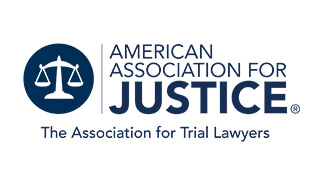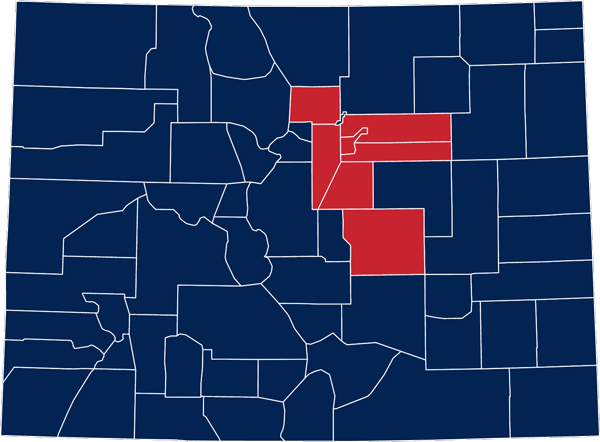Colorado brain injury lawyer Vern Ready is a committed advocate for people who have suffered brain injuries.
Traumatic brain injury (TBI) cases are not like any other type of injury case. Our brains are not just parts of our bodies. The loss of the use of a leg, arm, or shoulder has enormous impacts on a person’s life. But within our brain is our identity. All that we remember, every relationship, and all of our decisions, originate and reside in the brain. Our brains determine who we are, how or whether we interact with everything around us, and how we experience and react to literally everything. Even so-called mild traumatic brain injuries (mTBIs) can involve lasting changes to how a person thinks, feels, reacts, and remembers.
There really are no *mild* traumatic brain injuries. Some doctors use that phrase to describe a classification of brain injury in order to distinguish it from the other medical classifications. In real life, no injury to the brain that causes long-term life changes can be fairly described as “mild”. Injury to the brain does not just change one life. Brain injuries usually impact the lives of friends, family, coworkers, and caretakers too.
What Brain Injury? I Don’t Have A Brain Injury.
Doctors, lawyers, and even jurors, often expect people who have been injured to provide accurate, consistent and thorough descriptions of their condition and abilities. For people with brain injuries, that can be an unrealistic expectation. Sometimes people are not comfortable acknowledging limitations. That is more often true where a person feels diminished in some meaningful way. Have you ever heard of someone with memory loss pretending they remember more than they actually do? Have you known anyone who was losing their hearing who would sometimes nod along without a clear understanding of what was being said to them?
Unique Medical AND Legal Needs
People with brain injuries often try to minimize, conceal, or explain away their symptoms. Sometimes they are simply not aware of the extent of the injury, or its impact on them and others. Many of the people reading this are likely caretakers or family members. These people often know more about the true extent of an injury to a person near to them. It is much easier to accept, admit, and describe a back, neck, or shoulder injury than it is to accept that something has changed our personality, our ability to process information, or our ability to remember facts. Even when it is impacting a person’s job, relationships, or interests, a person with a brain injury may be doing their best to get by in what is now a changed world for them. That can be a very difficult realization, and it is natural to avoid it or keep the details private. Brain injuries have the potential to undermine our opinions, our reasoning, and can cause people to experience fear about how their loved ones would perceive them if they knew how bad it really is. Those feelings and fears would be difficult for someone without a brain injury to deal with. Expecting someone with a brain injury to be accurate, forthright, and consistent about all their symptoms and limitations, especially while they are attempting to understand and adjust to new changes in how they think and feel, will in some cases be unrealistic.
Medical
For medical providers, this hesitation on the part of the injured person to fully share can very easily mean doctors never actually suspect a brain injury occurred. Most brain injuries are invisible from the outside. Most doctors are not able to spend enough time with a patient to recognize when they are behaving differently than they otherwise would. The problem is even worse in the context of emergency treatment. The evaluations used in ambulances and emergency rooms typically consist of checking to see if the patient is able to look at the provider and speak in a way that seems coherent. If a patient can do that, emergency room staff are unlikely to further investigate or treat a brain injury. Emergency rooms prioritize stabilizing patients. Then they tell them to follow up with their primary care doctor. Even primary care doctors who suspect a concussion often tell people to avoid computer screens for a couple of days, and that’s the extent of the brain injury care. Those who get follow-up treatment tend to be those who are persistent in reporting their symptoms, and continue to follow up to ask for care. Again, this is often too much to ask of someone who is suffering with a brain injury.
Most brain injuries cannot be seen on X-rays and CT scan imaging, although CT scans can catch brain bleeds. Most brain injuries that can eventually be seen in imaging require special MRI equipment and testing that is rarely used in emergency medicine for brain injuries, and typically only when the brain injuries are already very obvious.
Unfortunately, many brain injuries are missed, or never fully understood, because medical providers miss the indications of brain injury, and people who suffer brain injuries are not always able to identify their own need for care.
In my experience representing people with brain injuries, they are not always initially aware that their brain is injured at all. In part because nobody wants to believe their brain has been physically changed, people often focus on individual symptoms without connecting those symptoms to a head injury. For example, a person might know they hit their head during a car wreck, but then think their altered vision afterward is a problem with their eyes. Those folks will likely end up seeing an optometrist before they seek out care for a brain injury, if they ever do.
Even where medical providers are able to identify a brain injury, getting all the appropriate care to ensure the best possible recovery can be a challenge. Patients are too often required to be their own advocates to be sure they get all the care they need. If you know someone who has ever needed treatment for a serious condition, they probably have stories about a doctor who did not believe them at first, or stories about having to persistently ask for help with something before they actually got it. This is a much larger problem for people with brain injuries, who, in many cases, must rely on others to research, propose, and pursue appropriate treatments. Everything from reporting symptoms to making appointments, to following through on needed care, is more of a challenge for people with brain injuries. All of this makes the people around a person with a brain injury crucially important. And what happens for those who are alone or without loved ones nearby? Brain injury lawyers can and should have a role in helping survivors of brain injury get the medical care they need.
Legal
For lawyers, brain injury cases are high stakes, high complexity, and high effort cases. For attorneys who prefer maximizing the value of a smaller number of high complexity cases, brain injury cases can be among the most rewarding cases to work on. Best outcomes for these cases are far more likely with attorneys who have a special interest in brain injury cases. These cases require long-term commitments and extraordinary efforts. Good brain injury lawyers must be diligent and energetic one or two years in, just as they are when the case begins. Good brain injury lawyers have to look beyond the information and evidence that is placed in front of them, and they must be willing to become part of that support team that every brain injury survivor needs. We have to get out of our offices and into the lives of our clients. We need to take the ties off and be willing to spend time with the support team, including the caretakers, friends and families who can teach us the little things, and the big things, we might not catch otherwise. Many brain injury cases require and deserve that kind of involvement and commitment from TBI lawyers who want the best for the people they are helping.
Specialized knowledge
In addition to the willingness to put in the right amount of time learning about our clients as people, TBI cases generally involve a lot of science and scientific testing. From making sure our clients are getting excellent and appropriate treatment, to making our best efforts to document the injuries, and understanding the findings of medical experts, brain injury lawyers need to gain some understanding of the related science and methods. Brain injury cases often involve complicated medical records, extensive and expensive testing, and battles between well-qualified experts with conflicting opinions. The ability to identify the vulnerabilities and limitations underlying testing and interpretation methods is especially important in these cases. A good understanding of the testing, imaging, and other procedures relied upon by medical experts in brain injury cases, along with studies and developments in those areas, can make a huge difference in the outcome of a case.
Broad experience
It is not all deep science, either. Your Colorado brain injury attorney should also have experience across a wide range of other injury cases. Brain injuries could have an innumerable range of causes and could occur in any context. Experience handling car accidents, trucking accidents, slip and falls, trip and falls, work injuries, general negligence cases, and other premises cases, will be useful in brain injury cases. That is also true for an understanding of a range of other injuries because brain injuries are often accompanied by other injuries. At Ready Law, I have helped people get full and fair compensation for a wide range of injuries in a variety of contexts.
As a Denver brain injury attorney I offer extensive experience helping clients with a broad range of injuries caused by car accidents, truck accidents, bicycle and pedestrian accidents, work injuries, and falls, and I am especially interested in helping clients who have suffered a brain injury meet the unique challenges they face.
Caretakers
Your effort, your challenges, and your unique perspective are appreciated here. It takes a team, and I am honored every time a friend or family member trusts me to join that team and help their loved one.
If you have, or someone you love has, suffered a brain injury that you believe was caused by someone else, call or text now to schedule your free consultation. I offer free, no-obligation consultations in person and by video chat.
Lower-light office meetings and video chats are available upon request, and phone calls are always an option in place of video chats, for light-sensitive and screen-sensitive brain injury clients. You have nothing to lose by reaching out and talking to me about your legal options. Call 303-339-8846, or click here to text me directly.





